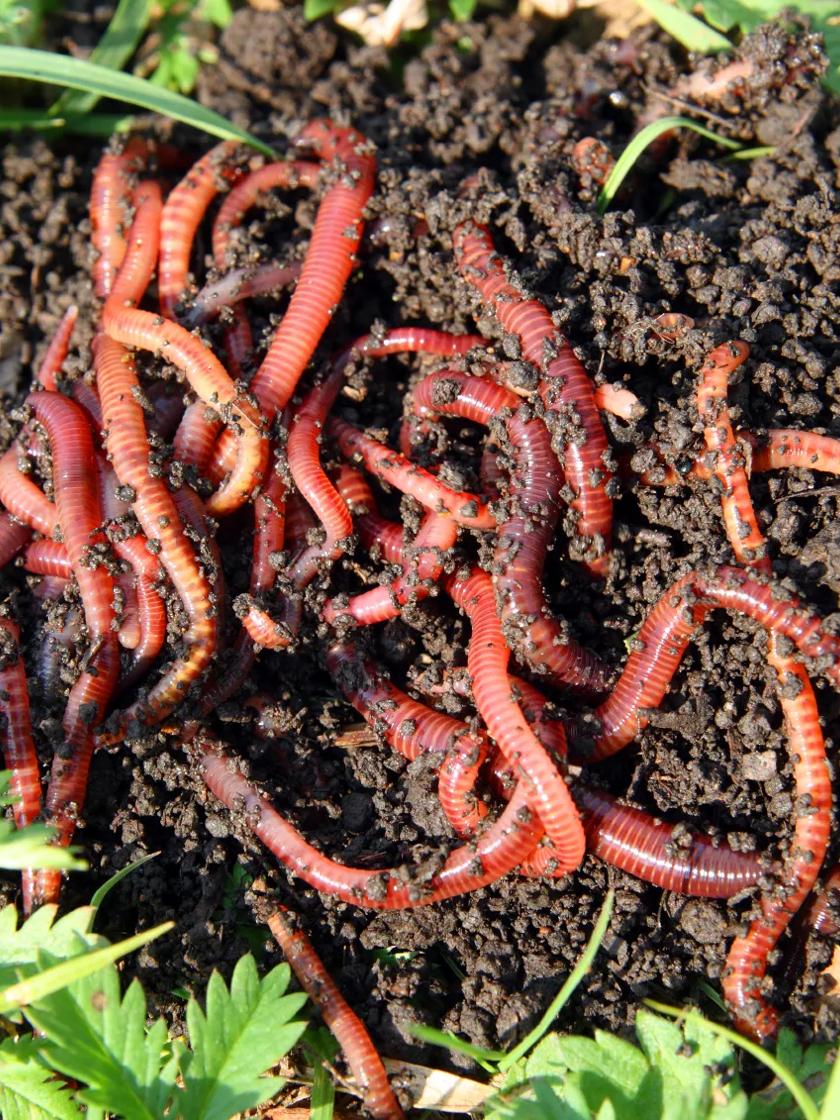Transform Your Lawn with the Expertise of Red Wiggler Express Lawn Care Specialists
Transform Your Lawn with the Expertise of Red Wiggler Express Lawn Care Specialists
Blog Article
Unlock the Tricks of Red Wigglers: Your Guide to Composting Success
The assimilation of red wigglers into composting techniques offers a substantial possibility for boosting dirt wellness and promoting sustainability. These organisms are not merely effective recyclers of organic waste; they offer a myriad of advantages that can change yard management. Recognizing their demands and behaviors is crucial for optimizing their capacity, from establishing a proper worm container to feeding them the right materials. As we explore the crucial elements of successful vermicomposting, one could question how these little animals can result in an extra lively and productive yard ecological community.

What Are Red Wigglers?
(Lake Rhodhiss Bait)Red wigglers, medically called Eisenia fetida, are a varieties of earthworm mainly utilized in composting as a result of their impressive capacity to disintegrate raw material effectively. These worms are characterized by their reddish-brown pigmentation and a segmented body, generally determining in between 3 to 4 inches in length. Unlike various other earthworm species, red wigglers thrive in abundant, organic settings, making them optimal for vermicomposting systems.
Belonging To The United States And copyright, they are typically located in decaying fallen leaves and compost heap, where they play a critical function in nutrient recycling. Their adjustment to living in a damp, aerobic atmosphere allows them to take in huge amounts of natural waste, simplifying into nutrient-rich castings that improve soil wellness.
Red wigglers recreate quickly, with a solitary worm qualified of creating a number of cocoons each week, each consisting of several hatchlings. Understanding the biology and actions of red wigglers is essential for optimizing their possibility in composting applications.
Advantages of Making Use Of Red Wigglers
Using the power of red wigglers in composting supplies countless advantages that improve soil wellness and advertise sustainable waste administration. These impressive organisms efficiently damage down organic issue, changing cooking area scraps and lawn waste right into nutrient-rich vermicompost. This finished item is extremely useful for plant development, as it improves soil structure, raises wetness retention, and boosts nutrition schedule.

(Red Wiggler Express)Furthermore, the presence of red wigglers in your composting system can accelerate the composting process, producing premium garden compost in a portion of the moment contrasted to standard techniques. The castings created by these worms are likewise including helpful bacteria that even more enhance the dirt environment.
Setting Up Your Worm Container
Creating an effective worm container is a simple procedure that can dramatically boost your composting efforts. Worm bins can be made from plastic storage bins, wooden boxes, or commercially available worm bins.
Next, prepare the bed linens material, which acts as the worms' habitat. A mix of shredded newspaper, cardboard, and coconut coir works well, providing a comfy atmosphere for the worms. Go for a bed linen depth of concerning 4-6 inches. Moisten the bed linens gently, guaranteeing it resembles a moist sponge without excess water merging at the base.

Feeding Your Red Wigglers
To make sure the wellness and performance of your red wigglers, it is important to supply them with a balanced diet plan that satisfies their dietary needs. Red wigglers flourish on a varied range of natural products, which not just supply required nutrients but additionally advertise effective composting.
Start by including cooking area scraps such as veggie peels, fruit cores, and coffee grounds. Avoid citrus fruits, onions, and garlic, as these can be damaging to worm health. Furthermore, present shredded paper, cardboard, and completely dry fallen leaves to develop a well-aerated atmosphere.
Feeding regularity need to be kept an eye on; generally, worms can consume half their body weight in food weekly. It is critical to avoid overfeeding, as excess food can lead to undesirable odors and draw in bugs. A great method is to add food in little quantities, allowing worms to process it before introducing a lot more.
Preserving dampness degrees is likewise vital; the bedding needs to perspire yet not soaked. Be certain to on a regular basis check the temperature and pH degrees of the container to make sure an optimal setting for your red wigglers, inevitably enhancing their composting performance.
Harvesting and Making Use Of Compost
An effective composting procedure with red wigglers finishes in the abundant, dark compost referred to as vermicompost, which can dramatically improve soil health and wellness and plant growth. Collecting this nutrient-dense material typically occurs every 3 to 6 months, relying on the size of your system and the amount of organic matter being refined.
To gather, gently different the garden compost from the worms and any type of undecomposed products. One reliable method involves relocating the components of the container away and including fresh bedding and food to the empty space, encouraging the worms to migrate. After a few days, the compost can be accumulated from the contrary side.
It is crucial to use vermicompost correctly to optimize Red Wiggler Express its advantages. By integrating vermicompost right into your gardening regimen, you not only recycle natural waste but likewise create a flourishing ecological community that supports lasting gardening techniques.
Verdict
In recap, red wigglers work as phenomenal allies in composting initiatives, changing organic waste right into nutrient-rich vermicompost (Red Wiggler Express). Their one-of-a-kind biological qualities and efficient waste handling abilities add significantly to lasting horticulture methods. By recognizing the optimum conditions for their environment, feeding needs, and compost harvesting methods, garden enthusiasts can improve soil health and advertise plant vigor. Embracing vermicomposting not only decreases landfill waste but likewise cultivates a more eco responsible strategy to horticulture and resource monitoring.
Report this page